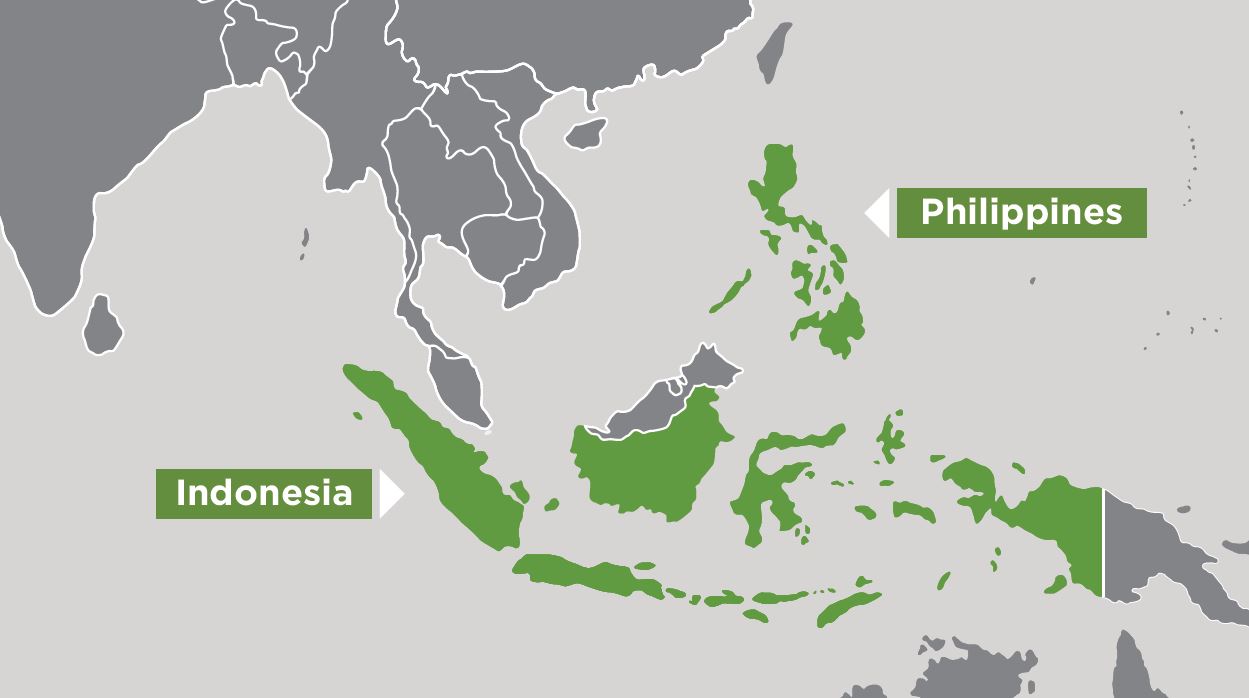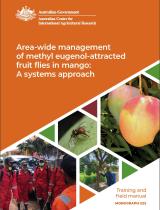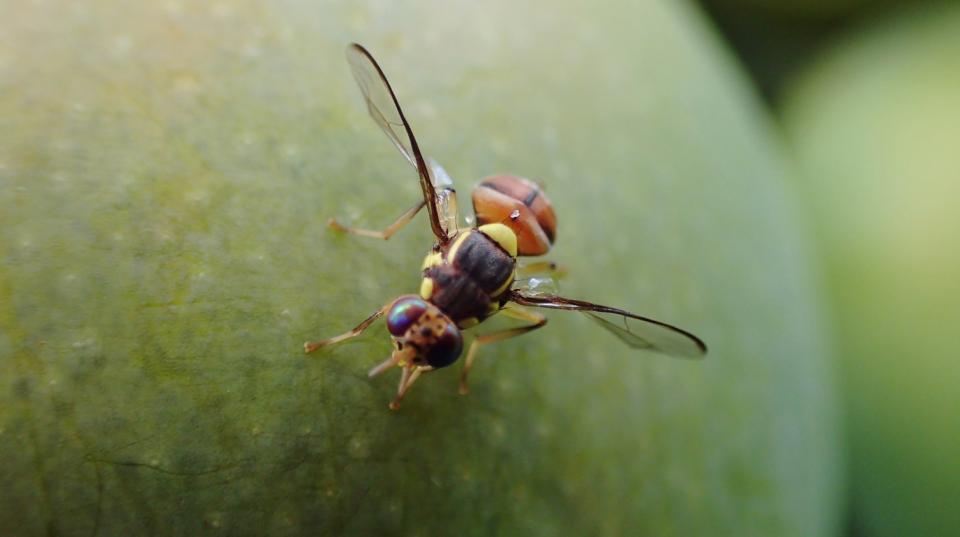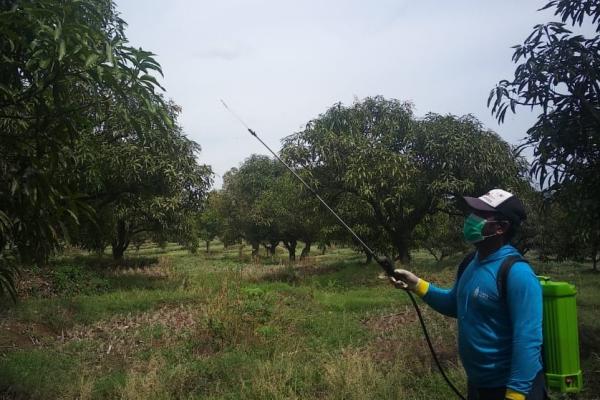Overview
This project is reducing mango fruit-fly infestation and improving yield and quality through area-wide management and improved pre- and post-harvest practices and improving production and trade.
The estimated number of mango growers in Indonesia and the Philippines is 2.3 and 2.5 million respectively. In both cases, over 70% of mango growers are resource-poor smallholders.
While the area allocated to mango production is on average less than 0.15 ha, mangoes play a significant role in supplementing on- and off-farm incomes.
Pests and diseases, along with poor crop-management practices, constantly threaten productivity and the quality of the fruit in both countries.
In Indonesia, efforts to develop and deploy area-wide management (AWM) of fruit flies in West Java will be supported and monitored by this project. Additionally, a system will be created to enable growers to shift a significant proportion of their production to the highly fruit-fly susceptible but more lucrative Gedong Gincu variety.
In the Philippines, a small pilot trial will test a simplified AWM-based system.
Expected project outcomes
- Economic benefits due to reduced fruit fry losses and improved fruit quality.
- Increased awareness among farmers of beneficial species for a range of pests, providing greater knowledge of where and when to use insecticides and the consequences of using broad spectrum compounds.
- Dissemination of new knowledge and skills to other farmers in the participating communities.
- Increased capacity to adopt best practice post-harvest handling and treatment methods.
- Increased understanding of fruit fly control strategies that are simple and inexpensive to apply.
- Health benefits due to reduced use of broad-spectrum insecticides and improved insecticide application methods in mango production.
Summary of outcomes to date
2021–22
Indonesia
- Fruit fly populations at the commercially treated sites were extremely high, up to 400 flies per trap per day (FTD), compared to below 1 FTD at the two AWM sites
- Male annihilation technique (MAT) blocking densities halved at Krasak and Sedong Lor villages. Density reduction did not affect efficacy and reduced densities will reduce implementation costs
- Two new sites established: 1) Majalengka, West Java 2) Gresik, East Java
- Boron trials progressing to solve White patchy rice disorder
- Draft mango value chain report completed
- 2020 snapshot socioeconomic survey completed
- 2021 business training/technical guidance for mango farmers completed
- 2022 connecting gedong gincu AWM mangoes to the modern markets is being finalized (shipments planned for late 2022)
- The Improved fruit fly marking and observation techniques for mark, release and recapture research was shown to be efficacious on a large batch of 40 000 pupae
Philippines
- Fruit fly AWM research progressing
- Improved fruit bagging practices reduce fruit fly infestation and disease incidence
- Combinations of improved bagging practices and hot water, prochloraz dips result in improved quality and shelf life
- Fruit bagging and prochloraz research published
- Mango harvest quality monitored, Cecid fly, thrips and scab are major problems
- In transit trials of different pre- and post-harvest treated fruit are underway
Australia
- High-density trellis and high-density commercial pruning had significantly less mango scale and better spray penetration than low-density commercial pruning and medium density pruned mangoes
- Protein bait compound research has identified attractive compounds for Bactrocera dorsalis and Zeugodacus cucurbitae. Australian lab trials underway
2022-23
Indonesia
- Fruit fly populations at AW IPM sites remain low compared to non-AW IPM sites
- New site at Majalengka achieved FTD <1 within five months of implementation Majalengka growers received a 10% bonus for the high quality fruit
- Site at Gresik was unsuitable due to field crops dominating the area and mango production a very small proportion of the area.
- 2022 report on linking Krasak gedong gincu AW IPM farmers to the modern markets (AEON) has been completed
- Two models of linking to markets have been tested.
- i) Krasak fruit: responsibility to deliver fruit to several stores, this includes purchase of cartons.
- ii) Majalengka fruit: packed by farmers in cartons supplied by Ranch Markets and fruit collected and distributed by the purchaser
Philippines
- Improved bagging practices using Taiwan bags increase fruit retention and reduce fruit fly and disease incidence
- Combination of Taiwan bag and Hot Water prochloraz resulted in better quality fruit and longer shelf life due to delayed onset of disease
- In transit trials demonstrated fruit quality and shelf life was significantly better for Taiwan bag and hot water prochloraz treatments
Gender Research
- Project partners participated in the “Sout-Eeast Asia regional workshop on integrated gender in Agriculture in a changing climate” Bali 6-8 December 2022
- Household surveys and focus group discussions are imminent
- Online workshops are underway to develop survey protocols and develop common tools for data collection
Australia
- Protein bait compound research has identified compounds that are attractive to the Queensland fruit fly, Bactrocera tryoni
- Initial blends of protein bait compounds attracted significantly more mature fruit flies than the negative control in large cage bioassays
- Further blend bioassays are underway







